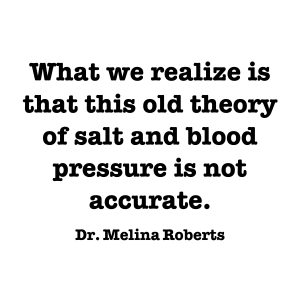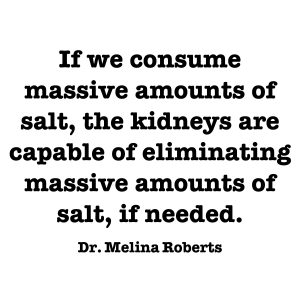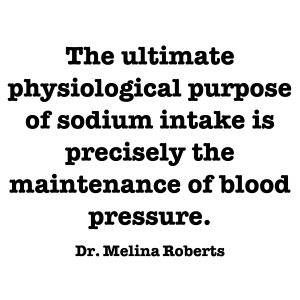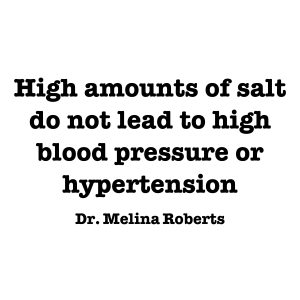Let’s talk about the salt-blood pressure connection!
The original philosophy on the Salt Blood Pressure connection was that high amounts of salt lead to an increase in blood pressure. If we have high amounts of salt, our body will retain more fluids in order to buffer that salt intake and that increase in fluids would lead to an increase in blood pressure. And blood pressure, even though it fluctuates, equates to cardiovascular health and problems with cardiovascular health equates to increased risk of strokes and heart attacks. So the hypothesis was that if we decrease salt in the diet then it would decrease blood pressure, and this would lead to a decrease in strokes and heart attacks.
The truth is more complex!
Studies showed that increases in salt DID NOT lead to an increase in blood pressure.
What we realize is that this old theory of salt and blood pressure is not accurate.
If we consume massive amounts of salt, the kidneys are capable of eliminating massive amounts of salt, if needed.
The ultimate physiological purpose of sodium intake is precisely the maintenance of blood pressure.
I hope this helps you to understand that high amounts of salt do not lead to high blood pressure or hypertension and do not correspond with negative cardiovascular health or lead to strokes and heart attacks.
References:
Graudal, NA, AM Galloe and P Garred. 1998. Effects of sodium restriction on blood pressure, renin, aldosterone, catecholamines, cholesterols and triglyceride: a meta-analysis. JAMA 279 (17):1383-1391.




